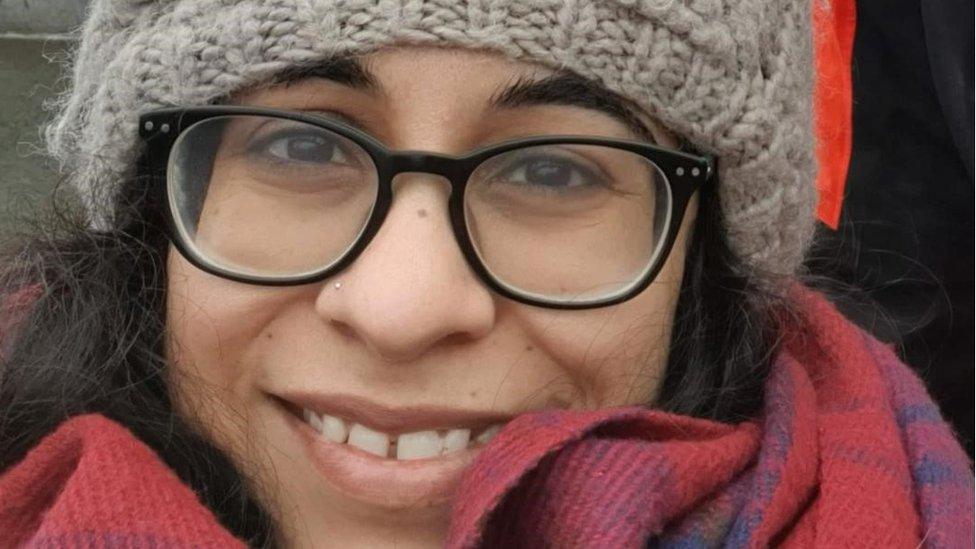Waiting lists: 'Appalling' gynaecology wait times under review
- Published
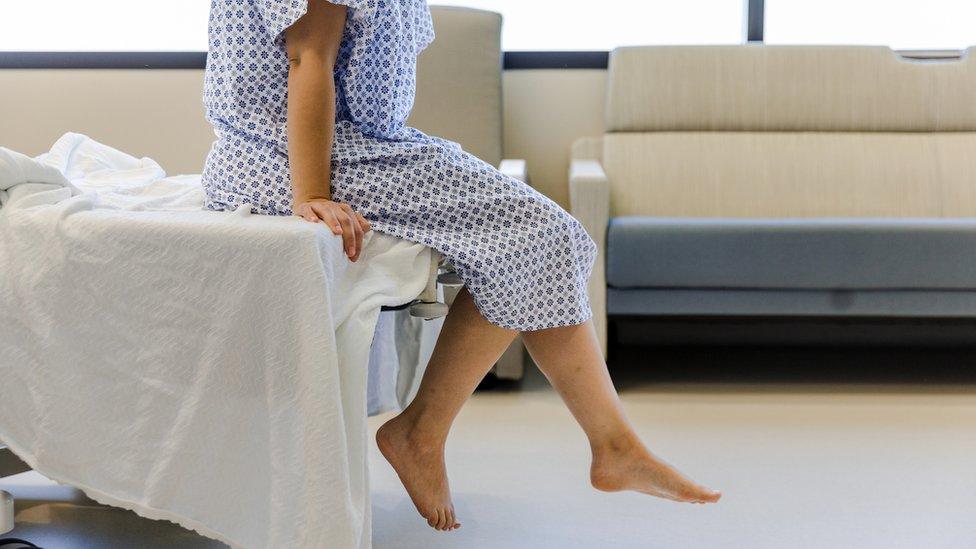
Northern Ireland has the longest gynaecological waiting lists in the UK
Waiting times for gynaecology services in Northern Ireland are so bad that an independent and rapid review is taking place, BBC News NI has learned.
It is being conducted by the Getting it Right First Time (GIRFT) programme which helps improve the quality of care within the NHS.
A GIRFT team spent a week this month visiting all five health and social care trusts.
In October 2022, 36,900 women in NI were on a gynaecology waiting list
A report from the Royal College of Obstetricians and Gynaecologists said that figure was a 42% increase since the start of the Covid-19 pandemic and that Northern Ireland had the longest gynaecological waiting lists in the UK.
While waiting lists show that some women are waiting about 110 weeks to see a consultant gynaecologist for the first time, consultants have told BBC News NI that the reality is women depending on their medical issue are waiting much longer.
Last year BBC News NI revealed that 323 women were on endometriosis surgical waiting lists.
Delayed treatment can impact on women's fertility and their overall quality of life.

'Endometriosis attacked my bladder'
Robyn Atcheson, who has endometriosis, said it took 12 years to get a diagnosis.
The delay in diagnosis and treatment led to multiple organs becoming damaged, she said.
"In that time the endometriosis attacked my bladder, my bowels, attacked the ligaments all over my pelvis," she told BBC News NI.
"It's caused other conditions and a kind of chronic pain that's lasted for most of my life now."
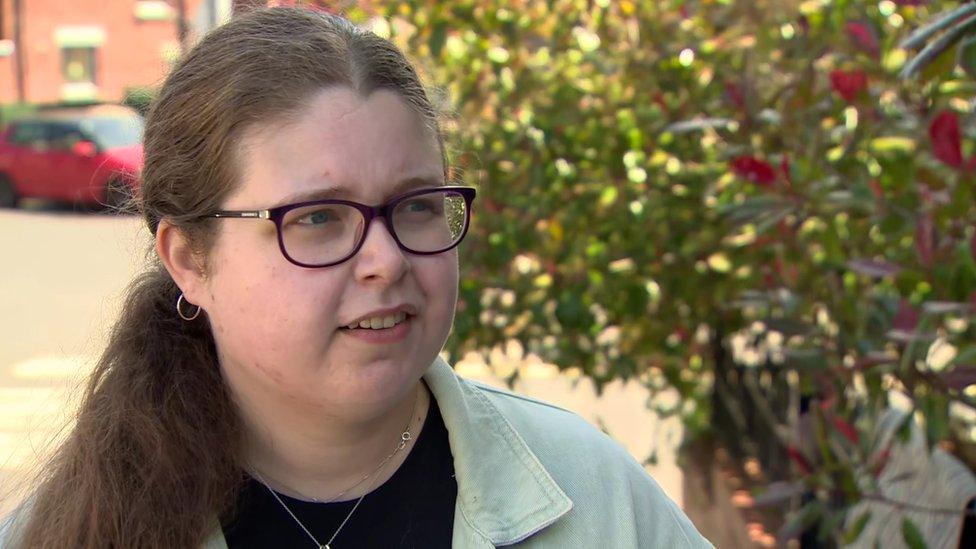
Gynaecology patients are waiting a long time for tests and scans, Robyn Atcheson said
Ms Atcheson welcomed the review into gynaecology service and hopes it will help those who struggle with the condition to get timely access to treatment.
"I'm always hopeful that things will get better, because we have had it so bad here in recent years, and I'm hopeful that this will provide the impetus to actually making change."

'Waiting too long'
The Department of Health told BBC News NI that it had asked for the review.
It added that many women were "waiting too long" and it was aware of the "impact this has on their lives".
The review team is led by GIRFT's clinical lead for gynaecology, David Richmond, who spoke to several clinicians and managers.
It is a national programme designed to improve medical care within the NHS and to tackle variations in the way services are led across the UK.
Claire Nicholls said medical professionals did not seem to believe how much pain she was in due to endometriosis
Sources have told BBC News NI that the GIRFT team have said they are "appalled" by the length of time some women are having to wait to see a gynaecologist.
There is also concern that no-one in Northern Ireland is "being held to account" for the waiting times and that the report could be "a complete waste of time".
In its statement the department said it recognised that waiting times for gynaecology services in Northern Ireland were among the worst in the UK.
It added that it was "committed to taking whatever actions it can to tackle these waiting times and ensure that patients are treated as quickly as possible to ensure best possible outcomes".
The GIRFT team began its work in February and is expected to conclude this summer with the publication of a report and recommendations.
The department said that the key aim was "to ensure that recommendations can be identified and implemented at the earliest possible opportunity" to facilitate the improvement in waiting lists for gynaecology services and to ensure that patients are treated as quickly as possible.
It added: "The review will consider all elective gynaecology services and will focus on maximising capacity in the Health and Social Care system to secure sustainable service delivery and more effective patient throughput in line with the Elective Care Framework and the Cancer Strategy."
The GIRFT team has direct clinical engagement through visits or virtual meetings between clinical specialists and it can examine individual trust behaviour and performance in the relevant area of practice.
Related topics
- Published25 October 2022
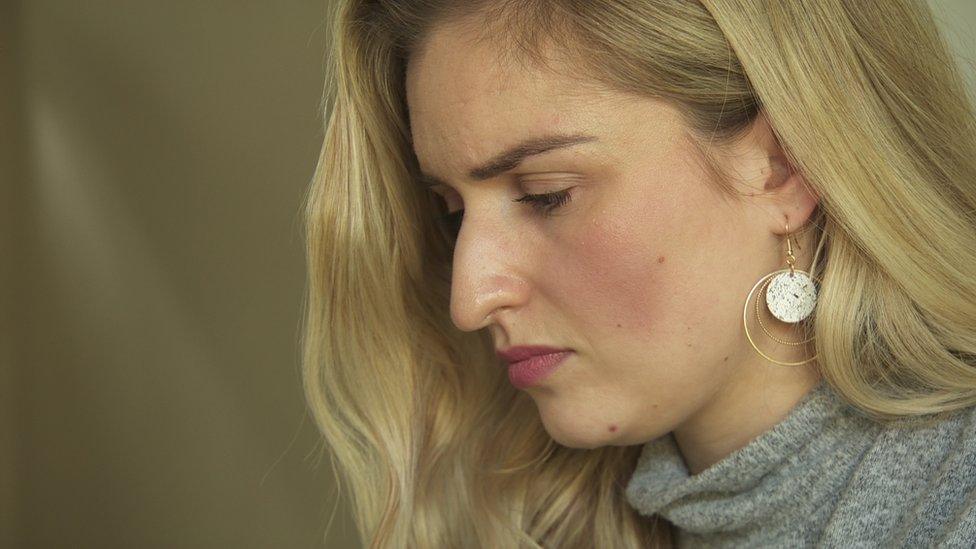
- Published23 May 2023
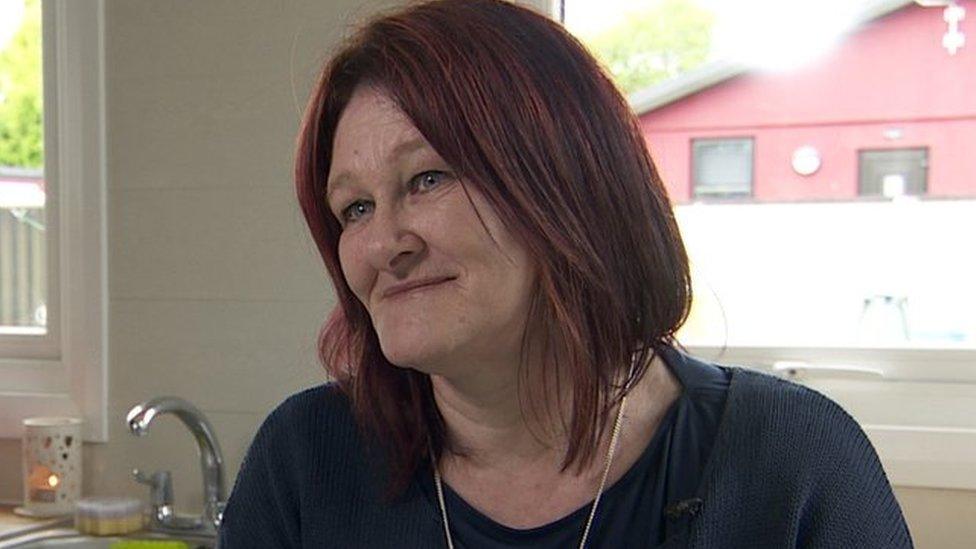
- Published9 March 2021

- Published4 April 2022
